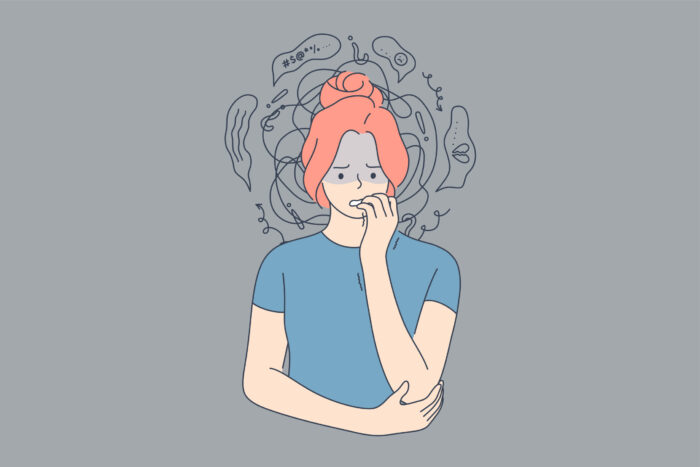A person’s total and permanent disability can have a significant emotional and financial impact on the family, especially if they are the family’s sole earner. In that case, TPD claims can help quite a great deal.
However, common perception holds that TPD claims just cover physical injuries. But it is relatively simple to show that the success rate of TPD claims for mental illness is extremely high when you meet the criteria.
This article will guide you through all the necessary steps you need to know to successfully claim your TPD for mental illness.
Understanding Total Permanent Disability for Mental Health
Some of the most typical mental health problems constitute the basis for a TPD claim and that includes mental illness. Over the years, people’s perception of mental health has changed and they are more sympathetic to this ailment.
However, many people think it is not worth seeking a TPD benefit for mental health. There are misconceptions that lead them to believe it will be challenging to get their claim granted. Here are the most common mental health conditions that can support a TPD claim with your insurer:
Depression and Anxiety
Experiencing anxiety is quite normal for us. We do experience episodes of anxiety in our lives. But chronic anxiety is a mental condition. People who suffer from anxiety disorders usually experience excessive and ongoing panic and worry about everyday daily situations.
A common feature of anxiety disorders is the recurrence of abrupt, acute feelings of fear or panic attacks that peak in minutes. These symptoms affect physical conditions and display issues like insomnia, high blood pressure, and loss of appetite, making it difficult to cope with work life.
There are no specific causes of depression, but chronic anxiety can trigger major depressive disorders in people. It is something that can be experienced in isolation as well. Clinical depression has been associated with common mental illnesses like panic and anxiety disorders, sociophobia, negative thoughts, and emotions.
People with both depression and anxiety often struggle to work and feel a lack of motivation to live their lives. Therefore, a proper diagnosis of depression or anxiety that has reduced or eliminated your ability to work is necessary for a TPD claim.
PTSD and Related Disorders
Some people may get post-traumatic stress disorder (PTSD) after experiencing a startling, terrifying, or deadly event. Childhood stress and traumatic experiences like abuse, pain, and violence can also trigger trauma disorders. It can be triggered, for instance, while witnessing similar events during adulthood.
That means those who have PTSD continue to suffer strong, unsettling thoughts and emotions in connection with it long after the horrific incident has passed. They may also relive past incidents through nightmares and flashbacks. Fear is a common symptom for PTSD patients.
OCD, or Obsessive Compulsive Disorder, is another mental condition. Obsessions are a pattern of unpleasant thoughts and fears that cause you to engage in repetitive compulsions or actions. These recurring episodes of obsession seriously disturb and affect the daily activities of a normal person.
Traumatic or compulsive episodes can last for months or even years if not treated properly. On the grounds of proper evidence of PTSD or other OCD-related symptoms from medical professionals, a TPD claim can be made, deeming the employee unfit for continuing work.
Some other medical diagnoses which may be approved for TPD claims are schizophrenia, bipolar and borderline personality disorder, acute stress, and adjustment disorder.
Measures and Guide to a TPD Claim for Mental Illness
Typically, superannuation funds provide their members with three different types of life insurance. These are TPD insurance, life cover insurance, and income protection insurance.
The insurance coverage and insured benefit amount are both listed on your superannuation statements. You can even apply for extra TP cover if the basic automatic coverage does not suit your needs.
In terms of total permanent disability insurance, insurance companies have their own definitions and provisions of disability, both mental and physical. The basic TPD insurance policy covers two criteria. These clauses are “any occupation” and “own occupation”.
TPD Cover Regarding Any Occupation
This clause covers that you are not able to continue working in any job due to your mental condition based on your education, work experience, and knowledge. The TPD claim for this insurance clause is much more difficult and has a comparatively lower chance of approval.
TPD Cover Regarding Own Occupation
This states that you are unable to return to your previous work due to your mental disability. This TPD cover policy is very expensive as it is only available outside superannuation.
During the TPD claim process, there are several things you need to ensure beforehand and after your application is submitted for approval by your insurance company.
1. Selecting Best Fit Policy to Claim
You need to make sure which TPD insurance coverage you are considering for your application. As discussed earlier, you can claim your insurer for either “any” or “own” occupation clause. It is recommended that you seek legal counsel to understand the various policies your insurer has instituted regarding TPD claims.
2. Collecting the Evidence
Medical evidence to claim your mental illness plays a key role in the success of your TPD payout claim. This process can be lengthy and multi-staged as your insurer can disregard your claim due to a lack of proper medical evidence.
A TPD lawyer can assist you with navigating the process and instructing doctors or medical practitioners on your behalf. This process can be very expensive, especially for people from rural regions, as it requires various tests and approvals from several doctors and medical professionals.
A lawyer’s assistance, in this regard, is essential as they can provide the doctors with the necessary information about your illness and your claim to TPD so that they produce a medical report with comments citing the correct information on your mental health condition for the insurers to consider.
3. Proper Utilization of Claim Form
A crucial part of your claim, the form, cannot be taken lightly. Your initial claim process starts right after your submission of the claim form. A claim form can vary with different information and details and can be rather confusing.
It is, therefore, necessary to seek help from a TPD lawyer in terms of filling out the claim form details as they are well experienced and aware of the different formats and information contained in the insurance company policy.
It’s important to remember that a lot of the information is needed to establish your pre-disability occupation and whether or not you’re qualified for it in the future.
For example, some insurers would want you to provide the details of your latest occupation. This sometimes leads an insurer to think that the claimant’s pre-mental disability job pressure was too much for him to bear, resulting in mental illness. The insurer will then suggest looking for another job opportunity and may gradually cancel the application based on inaccurate assumptions. A lawyer can help you avoid this.
4. Being Patient and Keeping Touch
Once your claim form has been submitted, you must keep in regular contact with your insurer. Don’t assume that your insurer will call and give you an update regarding your application.
Normally, the insurance company takes a lot of time to decide on cases like TPD claims. Sometimes, they would tell you that your information is not mature enough to claim TPD for mental illness. Be mentally prepared to provide further evidence to prove your claim.
There could also be instances, due to prolonged delay, where your previous insurance officer has handed over your case to a new officer, who may not be familiar with your claim. You need to be patient and calm and stick to your regular approach for the result.
5. Continuing Treatment
It is also mandatory to continue your treatment for your mental illness. Because, after a further delay to your claim, your insurance company might even check on you to see if there are any reasons for which your claim can be denied. A regular appointment will ensure that you are in touch with your health practitioner and continue your medications.
6. Taking Further Steps
Your claim with TPD can be denied or canceled for various reasons. One reason is that your insurance company will tell you that you don’t abide by their TPD policy and definition. Or their assessment has proved that you are not suffering from any mental health conditions.
Another reason for denial is that your insurer believes that you can work in other forms of occupation based on your education and experience from your pre-disabled job. Regardless of any reason, you are fully entitled to take action against your insurer’s decision.
An experienced TPD lawyer can offer you a lot of different options with the best solution. Some options can be: following the dispute process to reclaim it; requesting an internal interview with the resolution team; or submitting your claim in court for a judge to decide.
Conclusion
An estimated 10.7% of the world’s population suffers from mental illness issues like depression, anxiety, and others, making it a severe problem.
Even though many TPD applications/claims which result from mental illness are challenged, case studies prove that most of these claims are accepted due to people’s positive approach to understanding mental health conditions and being more compassionate towards those who suffer from these debilitating issues.








Leave a Reply
You must be logged in to post a comment.